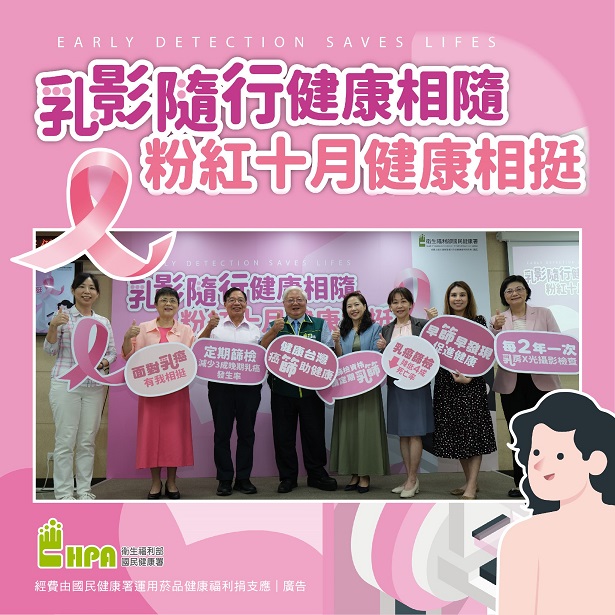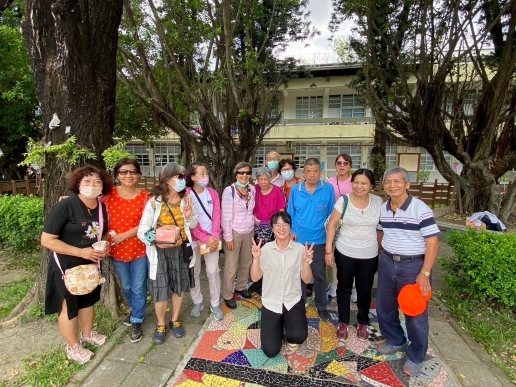October is International Breast Cancer Awareness Month, and many prominent figures, both domestically and internationally, are wearing pink ribbons to raise awareness for breast cancer prevention. Breast cancer has increasingly become a topic of public concern, encouraging women to follow the principles of "early prevention, early detection, and early treatment" to embrace health through early intervention.
Breast Cancer Screening Rates Still Insufficient
According to the National Health Agency's 2021 cancer registry and the Ministry of Health and Welfare's 2023 death statistics, breast cancer ranks first in incidence and second in mortality among female cancers in Taiwan. The highest incidence is in women aged 45 to 69. However, 34.5% of women aged 45 to 70 have never undergone a mammogram. The National Health Agency urges women aged 45 to under 70, and those aged 40 to under 45 with a family history of breast cancer, to have a mammogram every two years.
Starting in 2025, to address the aging population and the trend of younger breast cancer patients, the National Health Agency will expand screening eligibility to women aged 40 to 75. Eligible women are encouraged to visit healthcare facilities or local health centers for early detection and treatment.
Significant Screening Benefits
Mammography is internationally recognized as the most effective screening tool, capable of detecting calcifications or small tumors and identifying asymptomatic stage 0 breast cancer. In 2023, approximately 923,000 women in Taiwan were screened, and 5,392 cases of breast cancer were detected. Screening has proven effective, with 1 in 169 women being diagnosed, and 59.7% of these cases were early-stage cancers (stage 0 and 1), highlighting the critical role of screening in breast cancer prevention.
Breast Cancer Prevention: Prevention is Better Than Cure
Known risk factors for breast cancer include early menarche, late menopause, childlessness or childbirth after 30, lack of breastfeeding, a family history of breast cancer, gene mutations, and a history of breast, ovarian, or endometrial cancer. Therefore, women should actively avoid cancer-causing factors like smoking and alcohol, maintain a balanced diet, exercise regularly, and manage stress to reduce cancer risk.
Three Early Measures: Key to Cancer Prevention
Women should adhere to three "early" principles:
- Early Prevention: Avoid cancer-causing factors such as smoking and drinking, and adopt a healthy lifestyle.
- Early Detection: Women eligible for screening should undergo regular check-ups.
- Early Treatment: Abnormal screening results should be followed up with prompt diagnosis and treatment, as early treatment offers a 5-year survival rate of up to 90%.
In addition to regular screening, women should seek medical attention if they notice breast abnormalities such as nipple bleeding, discharge, dimpling, redness, itching, skin resembling an orange peel, or ulceration, to ensure timely treatment.







